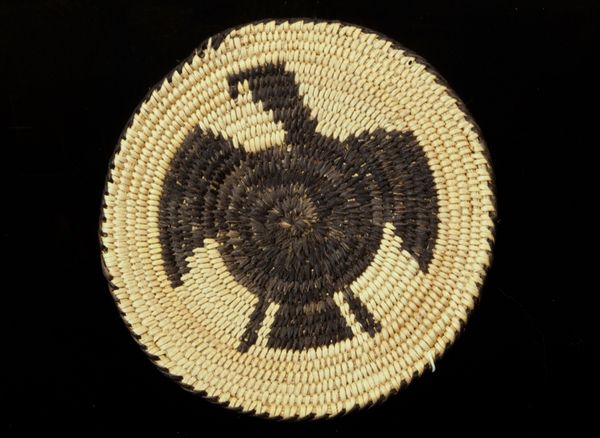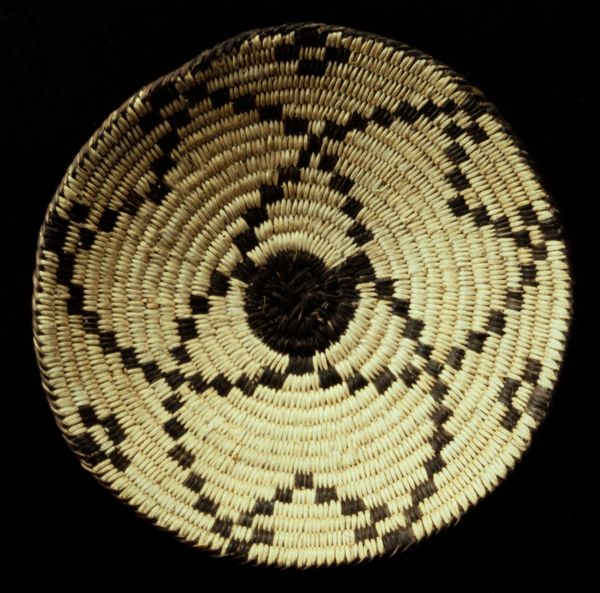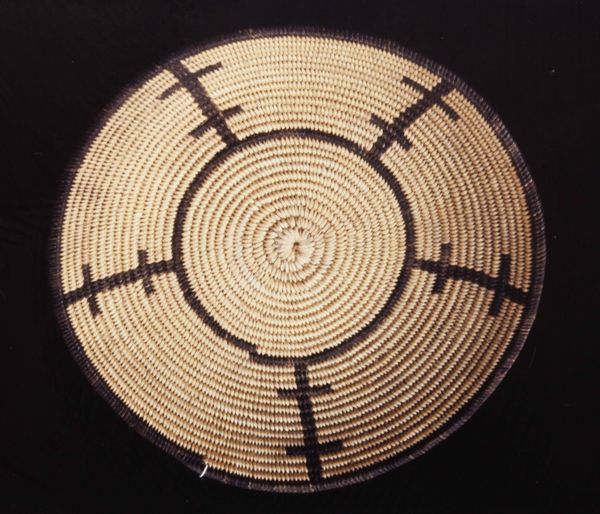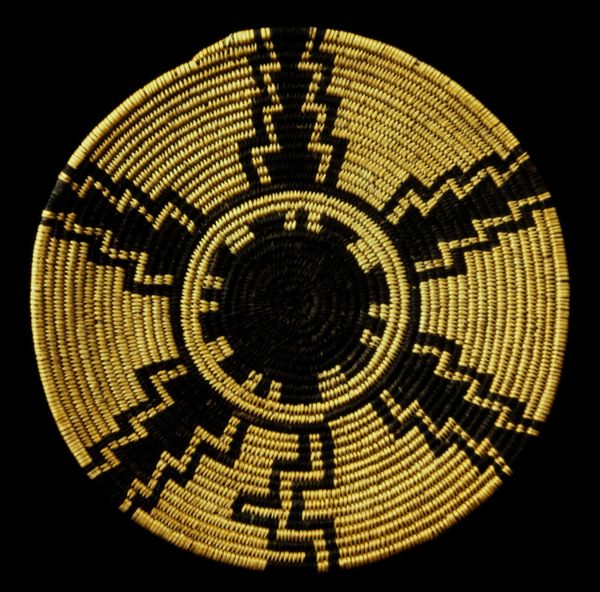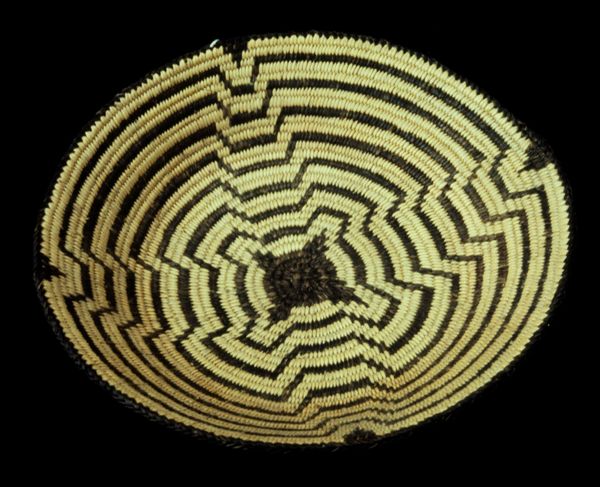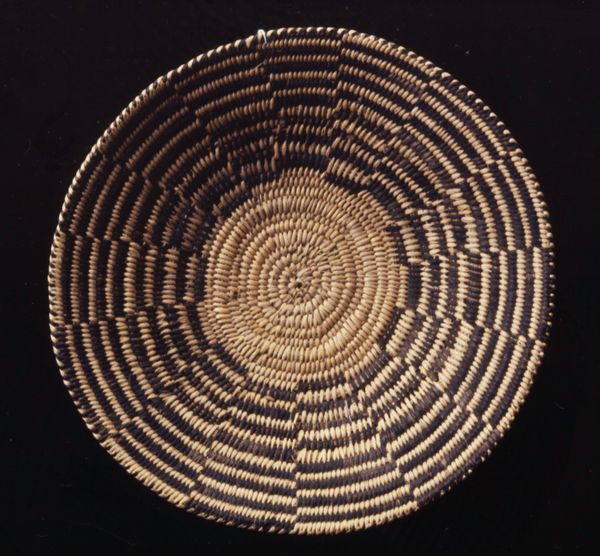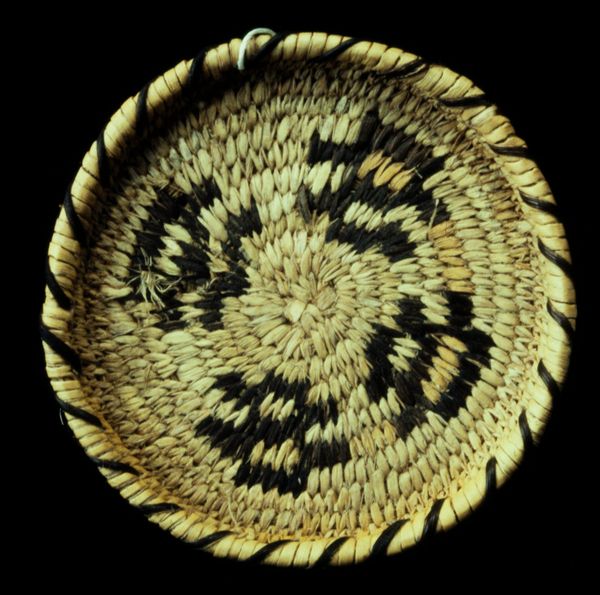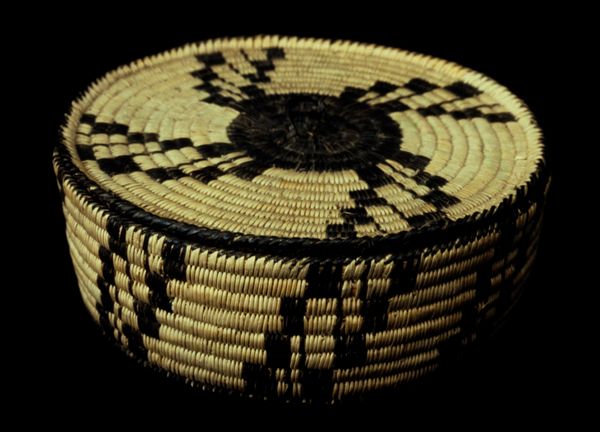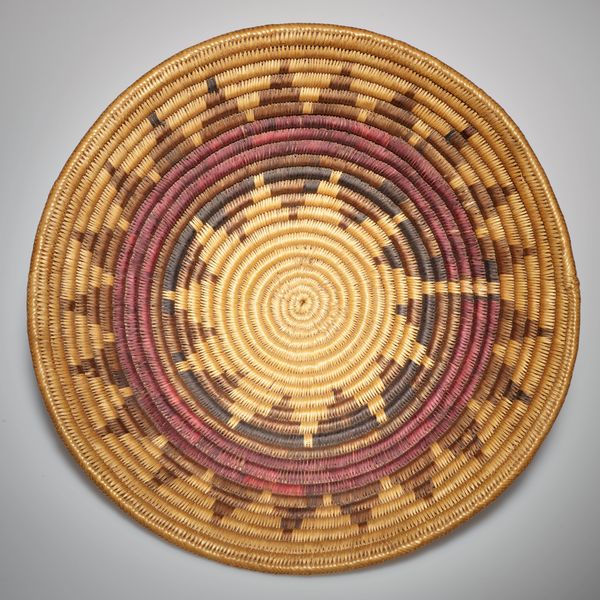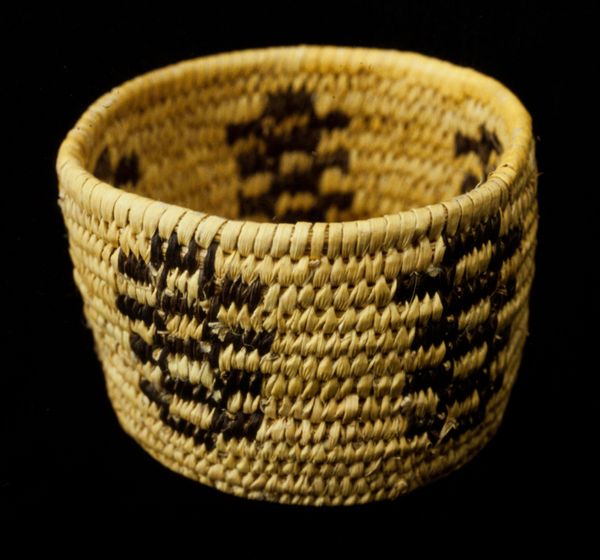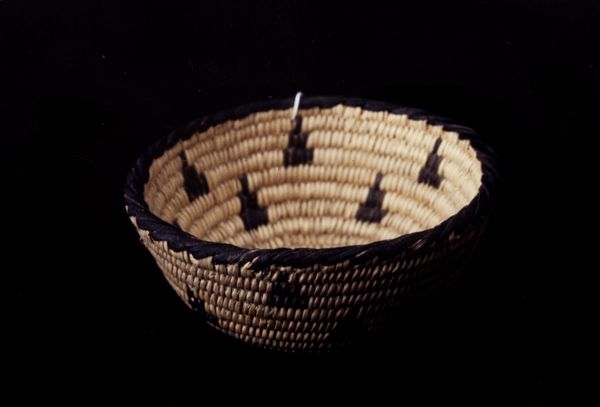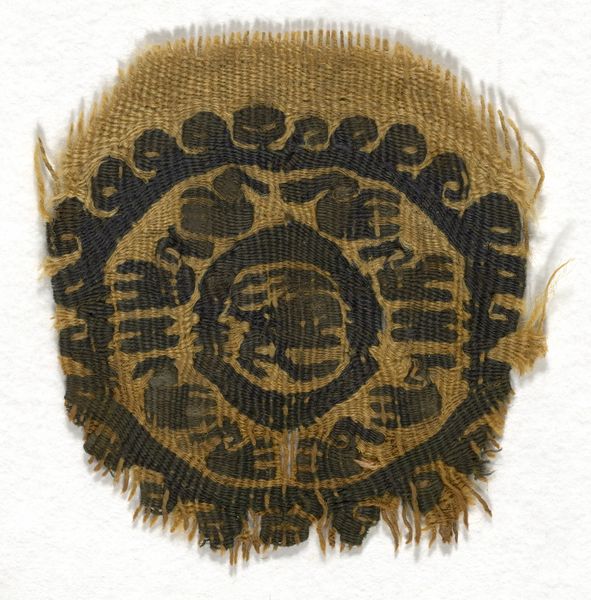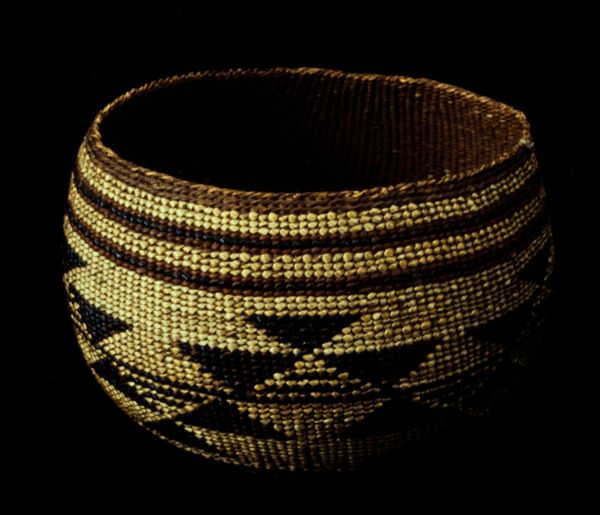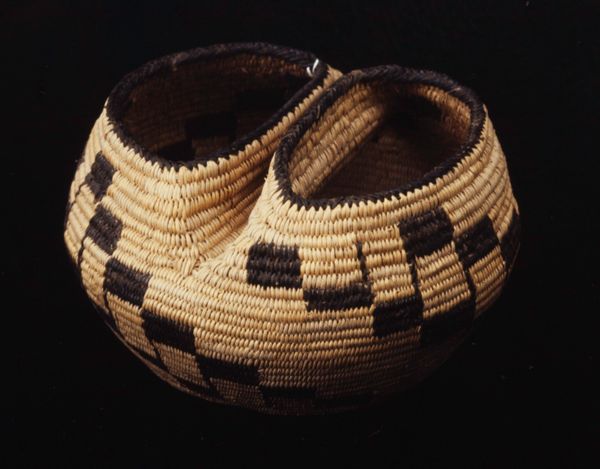
fibre-art, weaving, textile
#
fibre-art
#
weaving
#
textile
#
geometric pattern
#
folk-art
#
geometric
#
indigenous-americas
Dimensions: 5 1/8 x 5 1/8 in. (13 x 13 cm)
Copyright: Public Domain
This small basket was woven by a Tohono O’odham artist, using fiber. The artist uses a restrained palette, a creamy off-white and dark brown which gives the piece a graphic punch. The animals, maybe dogs, are arranged around a central point in the basket. The basket has a beautiful texture and a tight weave; you can almost feel the artist’s hand as they carefully placed each piece of fiber. The artist’s hand isn’t hidden, it’s celebrated. Look closely and you’ll see slight imperfections, a wobble here and there that adds to its charm. The dark animals and their implied movement create a strong contrast with the basket’s stasis. The dark repeated marks create an exciting rhythm, while the small variations give it a quality of being handmade. Thinking about this basket, I’m reminded of the work of Anni Albers, whose weavings also combined geometric abstraction with a sensitivity to materials and process. Both artists invite us to slow down, to look closely, and to appreciate the beauty of simple forms.
Comments
minneapolisinstituteofart about 2 years ago
⋮
The supply and demand of the market that grew between the Euro-American tourists and the Akimel O’othom and Tohono O’odham basket makers demonstrate the tribes’ high level of ingenuity and productivity. Novelty items invented by Native artists include waste paper baskets, animal and human effigies, and miniatures of popular basket forms. The smallest basket here measures only one half inch in diameter. The use of animal and human figures in the basketry was another result of the tourist market, as consumers sought after designs that were easily recognizable. Yucca plant also replaced willow and cottontail in many instances because it grew in abundance in the desert surroundings and took little time to prepare for weaving.
Join the conversation
Join millions of artists and users on Artera today and experience the ultimate creative platform.
